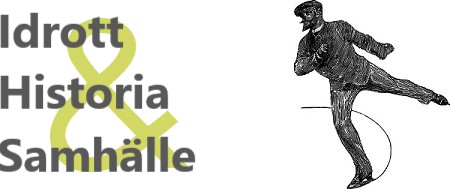Elegans, grace och kanoner. Utförsåkningens pionjärfas i svensk skidlitteratur 1926 – 1939
DOI:
https://doi.org/10.61684/ihs.vi.17809Nyckelord:
downhill skiing, nationalism, ideal of masculinity, gender, re-negotiationAbstract
The main purpose of this article is to analyze the pioneer phase of Swedish downhill skiing, especially slalom, from a gender perspective. The research period stretches from 1926 to 1939. I have performed an analysis based on which words are used in skiing literature to describe female versus male skiers. The main source for the study is yearbooks of the Swedish outdoor organization. The results show that there was a re-negotiation on which ideals were elevated in skiing, for male skiers as well as for female skiers. The cross-country skiing ideal was dominated by the silent and persistent male, as opposed to the cheeky and brave man in downhill skiing. Female downhill skiers were commonly appraised for their beauty, elegance, and grace, while male skiers were often described in words related to weapons, war and the military. The study also shows how Swedish nationalist expressions differed in cross-country skiing as compared to downhill skiing. Previous research on cross-country skiing has shown that a domestic sort of nationalism based on Swedish nature and culture has been dominant, whilst this study shows that the nationalist expressions, with regards to downhill skiing, rather asserted Sweden in relation to the Alp countries.
Publicerad
Versioner
- 2025-02-25 (2)
- 2022-12-01 (1)
Referera så här
Nummer
Sektion
Licens
Copyright (c) 2022 Artikelförfattarna och SVIF

Det här verket är licensierat under en Creative Commons Erkännande 4.0 Internationell-licens.



